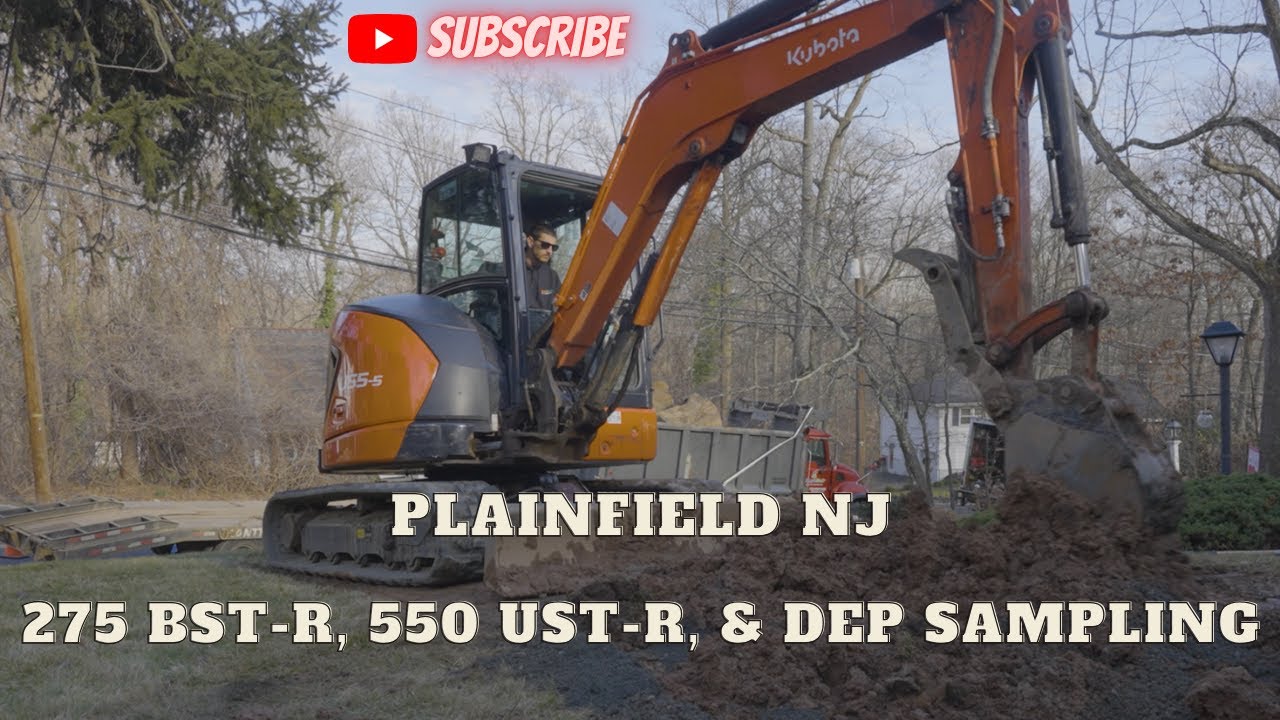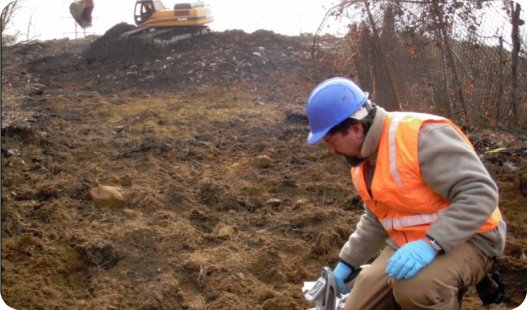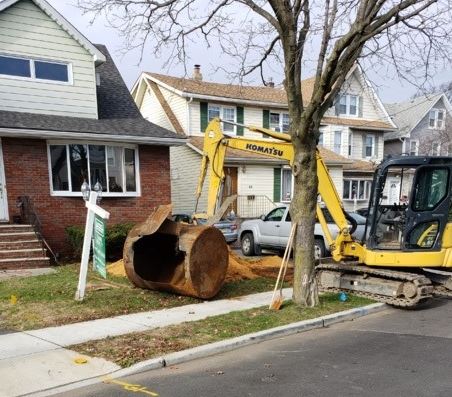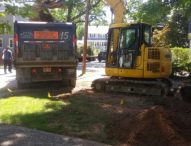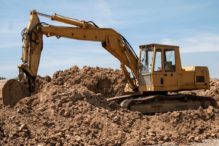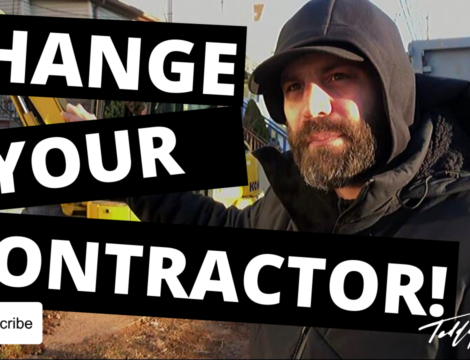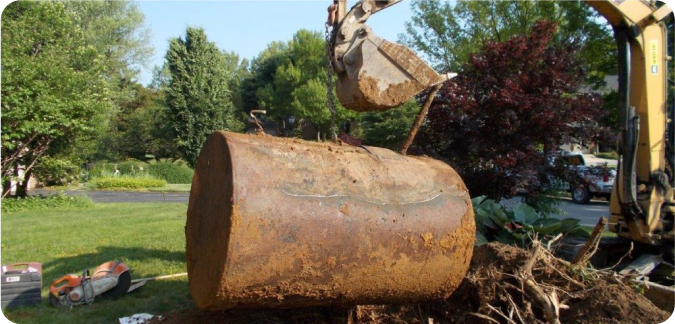Speaker 1:
Welcome to Tank Talk with Teddy, a podcast talking all things related to residential oil tanks. You have questions? Teddy has answers.
Teddy:
[inaudible 00:00:18] this is Teddy.
Jennifer:
Hi Teddy. My name is Jennifer [inaudible 00:00:20].
Teddy:
Oh yes, how are you doing?
Jennifer:
Good, thank you. So my husband and I have an accepted offer on a HUD home that has a properly permitted, decommissioned oil tank. And I naively thought that if it was permitted and it was decommissioned, that would mean that everything was fine. And that’s not what I understand to be the case. And I was wondering if there was any way to mitigate the risk through testing or something. We’re interested in the place, probably everything’s fine, but I understand that doesn’t mean certainly everything is fine.
Teddy:
Correct. No, you’re 100% correct. And you are absolutely taking the right precautions, because most people believe what you believe, that if it had proper permits, that everything is good. It’s the absolute, complete opposite of that. We actually find that a lot of these tanks that have permit, and were filled properly, inspected, a lot of those tanks, majority of them were actually leaking before they were filled in place. And it wasn’t detected because it wasn’t required to test the soil, so is a visual inspection which you can’t tell if the tank was leaking at the time and they just fill them in place. So we have a product or service that is set up exactly for this, where we come in and we probe around the tank. And we can tell you with 100% certainty if there is a problem. And if there is a problem, we’ll tell you to the exact penny on how much it would cost to cleanup. If it’s clean-
Jennifer:
Wow, you’re exactly the person I was looking for.
Teddy:
Yes. These are services are set up for… 90% of our clients are real estate related transactions, so we have very unique services that are set up for exactly what you’re trying to do. And we actually have a product where I could test it and if I tell you it’s clean, we back it up with 100% guarantee. As long as you pull that tank within six months by us, if there’s any contamination that we missed, we’re going to clean it up and no additional costs.
Jennifer:
Oh my gosh, I can’t believe this.
Teddy:
How does that sound?
Jennifer:
I called so many people and everyone’s like, “Oh, there’s no way to know.” So how do you know? Help me understand. I don’t…
Teddy:
So here’s the trick.
Jennifer:
And tell me what it cost because that’s very important.
Teddy:
Yes, absolutely.
Jennifer:
So go ahead.
Teddy:
So I’ll go through it. So yes, if you call 10 companies, nine of them are going to tell you it’s impossible, we’re the only company in the state New Jersey. We actually come out and we bore around your tank with what’s called a Geoprobe. It’s a tract rig machine, about $115,000 piece of equipment. The other guys that do your testing, they come out with hand boring equipment, and they send the guy out there that’s 10, $12 an hour. He’s not going to get to the proper depth, he’s going to get you a false reading, all these things. That’s why they don’t back it up with a guarantee. When we do our testing, we’re using a very high powered piece of equipment. And our tech is going to be able to get to the proper depth because that equipment is capable of going down to 30 feet if needed. I only need to go down to seven or eight, so I know I’m getting to the proper depth. So if there’s a major, major problem out there, I’m going to find it.
Teddy:
The only thing I could miss is I could miss a leak under the tank, but it’s going to be very minor because I know I sampled at the proper depth. And that’s why we offer a guarantee. It is an optional guarantee, there is a fee for it. So the way that it works is the initial investigation is $600. So for 600, I’m going to come out there-
Jennifer:
That’s a bargain, my God that’s such a bargain.
Teddy:
Yes. It is a good price. It’s very comparable to a regular soil test as a run 500, 600 bucks, and these guys are doing it by hand, and they’re not giving you all the information I’m going to give you. So we start at 600 initially. So worst case scenario, if I come out there next week for 600 bucks and I find a mess, and I come back to you and say, “You know what? You have a complete mess out here, it’s going to be 15,000, 20,000 to cleanup.” You could walk away, you’re only out of pocket the $600. If I find that it’s clean, you then go and buy the house, you close on it in 60 days, whatever. After the closing, then you would pay me a deposit for the tank removal, which is typically about $1,500. And then we charge, if you want that guarantee, it’s an additional 1400 bucks on top of the removal clause. And then you’re 100% covered for any liability.
Jennifer:
Okay.
Teddy:
So all in it’s about 3,500 bucks, if it’s clean.
Jennifer:
When are you available to bore around the tank?
Teddy:
If you sign on today, I could email you a proposal right now, it’s all electronic. I could have a guy out there, we have to call for utility mark-outs. What town is it in?
Jennifer:
Blairstown.
Teddy:
In Blairstown. So we’d probably be looking at Tuesday, the 26th.
Jennifer:
Today?
Teddy:
Today is Tuesday the 19th. So that’d be next week.
Jennifer:
Oh, so like a week.
Teddy:
Yeah, one week from today.
Jennifer:
So you come out with a high powered piece of equipment for $600 and you bore around everywhere, so you’re taking basically lots of soil.
Teddy:
Why our equipment is the proper way to do it is because it’s really the… It’s not amount of soil, it’s the depth of where you’re taking your sample. So for example, if a guy goes out there with hand boring equipment and he gets stuck around four or five feet because he hits a rock, and he can’t hand bore through it because he doesn’t have the power, he’s going to take a sample at four or five feet, give you the test results. Those test results 99% of the time are going to be clean because the proper depths where the oil is going to be leaking is around seven or eight feet, that’s where the bottom of the tank is.
Teddy:
So I know with my equipment, my guys just have to pull a lever. And like I said, it could go to 30 feet if it wants to, so I know I’m getting to the proper depth. And that’s why we are able to give you guarantee on it because I know I’m going to get to the proper depth. Worst case if I miss something, it’s going to be very minor and we’re willing to clean that up at no additional cost if you take the guarantee.
Jennifer:
And the name of your company, I wrote it down so sloppily when Sue gave me the thing, is what?
Teddy:
It’s Simple Tank Services. If you go on our website, which is simpletankservices.com, there’s a ton of video content on there. And you’ll be able to see what that machine looks like, and how the process works, as far as the borings go and everything, and you’ll be able to watch a short YouTube video on it. But we can do it typically within four business days and I’ll have verbal results for you that day, I’ll be able to tell you what’s going on. And then the lab results take five business days.
Jennifer:
All right, I’m sorry. What’s the four business days?
Teddy:
Four businesses is like if you sign today, I have to call for mark-outs, takes three days. So typically on the fourth day when you sign-on is when I could get you scheduled in.
Jennifer:
Okay. But if I sign on right now, can you get me scheduled for next Tuesday?
Teddy:
Yes. If you sign today, I’m going to email you right now. I’ll take some your info, I’ll email you out the contract, you just click approve on it. I’ll send you a link for deposit, I’ll set up your file, and put you on the schedule for Tuesday.
Jennifer:
Okay. Forgive me, I’m a little distracted. So it’s $600, you’re boring around, you’re taking lots of samples. And then how does it go from there? You’ll tell me that day, “This place is a disaster, you don’t want to buy it.” Or, “I think it’s pretty good.” That day?
Teddy:
Right.
Jennifer:
Now, is it you, or is it your guys?
Teddy:
No, I’ll have somebody out there. It would probably be one of my two project managers will be doing the borings.
Jennifer:
Okay. So I pay a deposit, I pay the [inaudible 00:07:53] 26. So you bore around it’s $600, you tell me that day is good or bad, and then what happens from there?
Teddy:
So I take one sample, I send it to the lab. The lab will pick up on that Wednesday and it’ll take about five business days. So the following week I’ll have you those lab results, which they just gives me confirmation. So if the soil is clean, we want to see the lab results come back non-detect which means there’s no detection of oil. And then that’s when we offer you the guarantee, which you decide on when you want… You don’t have to pay for anything until you close on the property as far as the guarantee goes in the tank removal. So you pay the only thing your pocket is $600, 300 today, 300 next week when we do the job, that’s it.
Teddy:
And then once the deal closes, if everything’s clean and you closing the deal, then you call us up, we send you a contract for the tank removal itself and then also the guarantee that would be included in there. And then you’re 100% covered, you have no risk at all. If we messed up and we didn’t find contamination and we completely missed it, we’re cleaning it up at no additional fees on top of the guarantee cost and the removal costs.
Jennifer:
All right. So the removal is how much?
Teddy:
Without looking at the job, typically, it’s about 1500 bucks to remove a tank if it’s easily accessible. And-
Jennifer:
And the guarantee… And you have to decide obviously before you remove it if you’re taking the guarantee or not.
Teddy:
Exactly, yeah. As long as you just tell us, the day before we pull it, and, “Hey, I want that guarantee.” And you pay for it with a credit card, you’re covered.
Jennifer:
And the guarantee is another 1400?
Teddy:
1400, correct.
Jennifer:
All right. So basically, you have a higher tech way to gather the things. But next Tuesday, your guys will be able to tell me like, “Yeah, you should go for this place or not?”
Teddy:
Yes.
Jennifer:
You’ll know if it’s a mess?
Teddy:
Exactly. I’ll be able to tell you with a pretty good confidence level what it looks like. And if it’s a mess I’ll be able to really tell you, “Hey, listen, this thing is a mess.” I’ll be able to tell you 100%. Yeah, next week you’ll have a verbal answer of what’s happening out there. And won’t be able to put an exact dollar figure on it until I get those lab results, typically. But I’ll be able to tell you, “Hey, this is pretty nasty, it’s leaking all over the place. It’s 10 feet deep. It’s five feet in this direction.” We’re going to figure all that out.
Jennifer:
And you’re able to do that only sending one sample to the lab?
Teddy:
That’s a great question. But the lab result really is a minor point of the equation, it doesn’t tell us that much. The main data that we need is how deep the contamination is, how far did it travel in each direction? And how deep did it go? That-
Jennifer:
And you can basically tell that by looking at the soil that you bring up?
Teddy:
Exactly. When I drill a probe down, it’s a two inch piece of pipe and I’m basically hammering that into the ground, let’s say eight feet. I pull it up, I have a eight foot sleeve of soil. I open it up and I can see all right at three feet, that’s where the contamination starts, it stops at seven and a half feet. And it tells me all that stuff.
Jennifer:
So I hire you, you come out at $600… I’m sorry, I just want to fully understand the process because it’s all new to me. Your guys bore around with these big expensive machines, and that day you’ll be able to tell me this place is a mess or not, so I’ll know whether or not to go forward?
Teddy:
Correct, exactly. Yeah.
Jennifer:
Okay. And then from there… So obviously you’re not going to… Oh, because you only offer a guarantee if you feel it’s not a mess. You’ll be able to tell me this place is clean and you’ll be so confident. So next Tuesday when I speak to your guys, you’re either going to say, “Buy this place, it’s clean. And I’m willing to remove the tank for $1,500 plus another $1,400 to guarantee my work.” Or you’re going to say to me, “This place is no good, don’t buy it?”
Teddy:
Well, yes, sort of. And the reason why I say sort of is because if the soil is clean, I’ll be able to tell you, “Hey, everything looks clean, appears clean, but we will need confirmation before I offer the guarantee.” Because the reason is it may be such a small traces of contamination that we may not pick it up visually or with our meters on site, we may have to wait for the lab to come back and tell us, “Hey, here’s your results. It’s a super low reading.” At that point then we don’t offer the guarantee. But I will be able to tell you confident, “Hey, this is a very minor issue here, you’re not going to have any major problems.” You know what I mean? I’ll be able to tell you that for sure. But the confirmation of that lab result really needs to say non-detect for me to offer the guarantee. That’s how it works.
Jennifer:
I see. So if I schedule you, and you’re not available any sooner than a week from now?
Teddy:
The problem is unless I could get one of my guys to come in on Saturday, which is possible, I could talk to them. But I might be able to do it Saturday because I have to call for utility mark-out, that takes three business days to clear. It’s already Tuesday, so Wednesday, Thursday, Friday is no good. So Saturday would be the first day, Monday is a holiday and then Tuesday, so either Saturday or Tuesday.
Jennifer:
Monday is a… Oh my God, it’s Memorial Day already? Wow.
Teddy:
Yeah.
Jennifer:
Okay.
Teddy:
[inaudible 00:13:08].
Jennifer:
So basically you wouldn’t be in a… But that would be before we close. So if it’s $600, I pay $600 and you’re like, “Oh, this place.”
Teddy:
Correct.
Jennifer:
Then I lose my 1,000 and 600. Well, I could probably get the 1,000 back if the place is a mess. And then when the lab results, the only way you offer it… So when the lab results come back, you will be able to price the cleanup at that point?
Teddy:
Yeah, exactly. Once the lab results come back, I’ll be able to put an… Either tell you, “Hey, you have a guarantee.” Or, “Here is cost for the fixed price remediation.”
Jennifer:
Okay. And you’ll be able to stand behind that cost? It’s not like you’ll say, “Oh, the cost is 5,000, [crosstalk 00:13:55] 25,000.”
Teddy:
No. That’s what’s very unique about our company and our services. Once I give you a number, it’s literally to the penny. It’s going to say, let’s say $9,765.32, it doesn’t change. That’s the quote, and if we completely mess up our investigation and I misquote you, and I come out there and I find a major mess, I’m going to do it, and you’re going to get a no further action letter. And your invoice is still going to be that 9,700 or whatever the quote is, that’s how it works.
Jennifer:
Okay, all right. Well, send me your stuff I can’t wait to hire you. And I’ll give you the deposit so you can plan for me and put me in for next Tuesday.
Jennifer:
(silence)
Teddy:
Okay. I’m going to email this to you, you’ll have it literally in a few minutes here. If you don’t get it in five minutes, just call me back it means I have your email wrong. But I’m going to send this out right now. If you have any questions, otherwise just click approve, type in your name as the signature. And then once that happens, I’m going to send you a link for the deposit and I’ll put you on the schedule.
Jennifer:
Awesome. I’m not home now, so give me a couple of minutes to get home and I’ll take care of it.
Teddy:
No worries, take your time.
Jennifer:
Thank you.
Teddy:
All right, bye-bye.
Jennifer:
Bye-bye.

